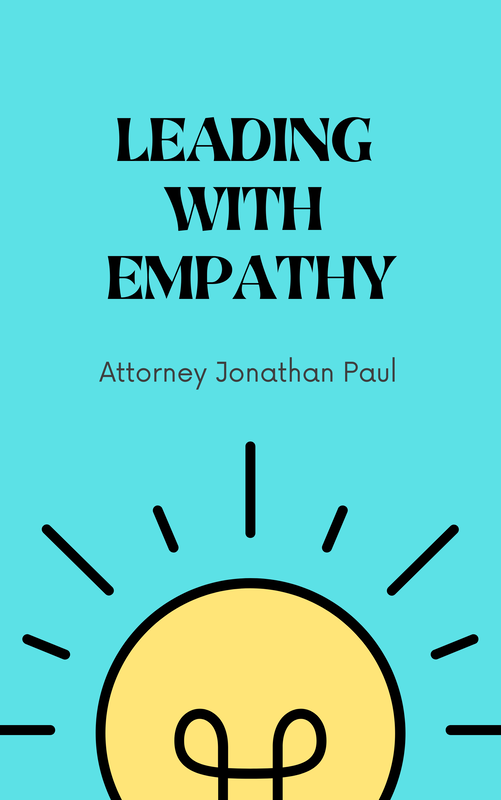Leading with Empathy - Step #8When charged with a crime, things are complicated, and it's easy to stick with the status quo; that means you do the crime, you do the time. You are simply a name and a charge without further consideration.
The goal for my client's is to take a complicated case and simplify it for the judge, prosecutor and the probation team. It's much easier to sell a simple concept, because it can inspire and motivate; a judge and prosecutor can light up with passion and use their formal power for the greater whole of the case. We must connect these power brokers with purpose, because with a higher purpose, things can happen that otherwise might have seemed impossible. There is so much negative peer pressure on a case-by-case basis; people charged with crimes all appear similar and it becomes a cattle call, and once you have one criminal, the next person is just a common criminal too. We want to flip the script and create positive peer pressure on a judge and prosecutor. Many times, the formal motto of a court is justice and consideration, and everyone getting their day in court with the full attention of all the key players; informally that does not happen. We must use our own informal power to apply the positive peer pressure by strong and organized documentation for my clients. This means getting the prosecutor onboard who then gets the judge onboard who then gets the probation team onboard; sometimes we need to recruit the police department to get onboard; positive peer pressure. As an attorney, I see the potential in all my clients and that confidence and admiration for my client's hard work rubs off on the prosecutor and judge. If my clients can grow, then the power brokers in the case can grow. It's all about taking a complicated case, take a deep breath and simplifying the case; this requires proactive work, and being organized; apply positive peer pressure to allow others to see the dynamic whole. Real life example of focusing on the big picture When a client is charged with drunk driving, there may be an implied consent issue, which really complicates a client case. This means a client will lose their license for 365 days regardless of the outcome of their criminal case. In sum, an implied consent refusal is very likely to be upheld, and you may need to wait months for consideration of a hardship license. This can be stressful and put my client’s entire daily life in jeopardy without the ability to drive. This is where we focus on the dynamic whole, simplify the case, and apply positive peer pressure. Because my clients are organized, motivated and working hard on a comprehensive proactive plan, we can document and share their impressive progress and get the police department and the prosecutor onboard to potentially withdraw the implied consent. This is not an easy task, but I am able to accomplish this rare outcome only because of the simple vision we create that inspires and motivates the folks with real power in a client's case. Comments are closed.
|
Available on AmazonJonathan Paul- X-Prosecutor |
